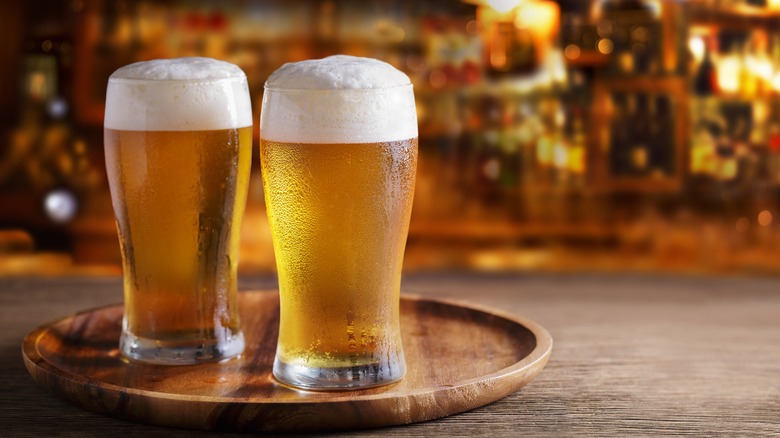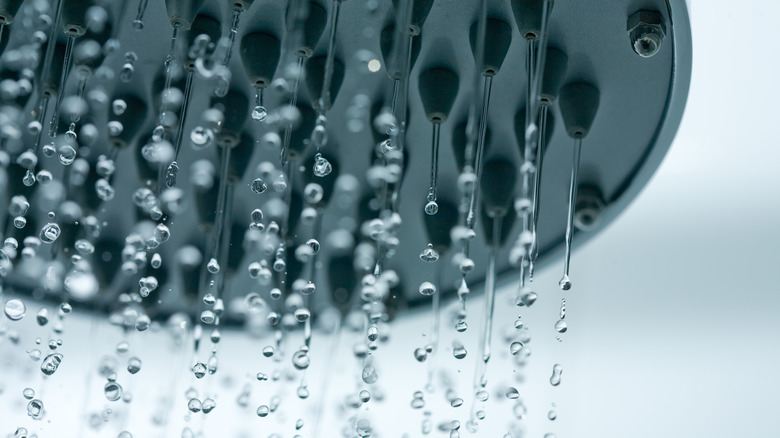What Is Wastewater Beer And Is It Safe To Drink?
From Chipotle to Bacardi to Bob's Red Mill, major food and beverage brands are taking steps to reduce, reuse, and recycle with the hopes of helping the environment. Ice cream brand Salt & Straw even debuted a series of flavors made from upcycled ingredients. But while the desserts were made from food that hadn't yet made it to a landfill, some companies are taking the movement a step further and making beer out of recycled wastewater. That means that after we use water for laundry machines and showers, it can be purified and repurposed — and it just might end up in your next pint.
This may sound gross at first glance, but engineers at Stanford University actually verified that recycled wastewater is just as safe to drink as regular water. They also discovered that it may even be less toxic than regular water because it undergoes a more intensive purification process. Plus, while using recycled water to make beer is a relatively new phenomenon, reusing water in general isn't. A 2019 arts festival in Arizona featured local beers made from wastewater, while the Orange County Water District has hosted the world's largest water recycling plant since the 1970s.
How wastewater gets turned into drinkable brews
So how exactly does water make its way from your shower drain to your beer glass? It undergoes reverse osmosis, which filters out all the gross stuff we don't want to put into our mouths. Specifically, it gets propelled with a high-pressure pump through a semipermeable membrane to allow some molecules through, while keeping others out. Reverse osmosis can remove up to 99% of bacteria and pyrogens from our water. If that still leaves you feeling a little queasy, just remember that this process is more thorough than what is used to clean our regular tap water.
To help the masses overcome the fear of drinking the recycled stuff, a start-up in San Francisco called Epic Cleantec partnered with Bay Area beer company Devil's Canyon Brewing Company to make wastewater brews. It collected and processed laundry and shower wastewater from a luxury high-rise apartment building in San Francisco and transported it to the brewery, where it was made into a crisp, fruity microbrew. "A lot of people ... were skeptical about the project or were hesitant to try it, but I would say 99% who came in feeling a bit apprehensive, once they tried it, got really excited," Epic Cleantec co-founder and CEO Aaron Tartakovsky told The Guardian. You won't see these specific drinks available in grocery stores anytime soon, but keep your eyes peeled for wastewater brews as the recycled water movement continues to gain momentum.

